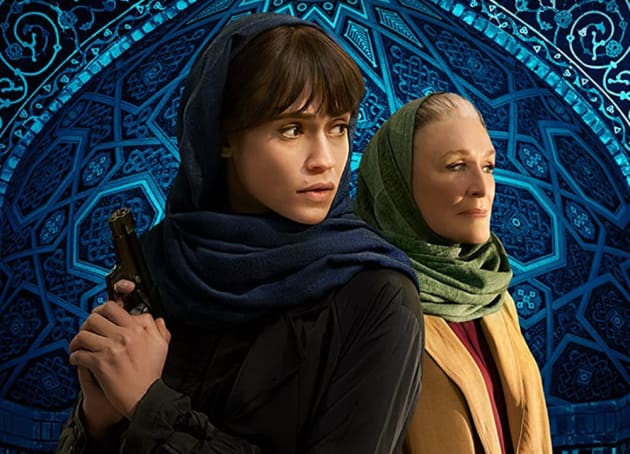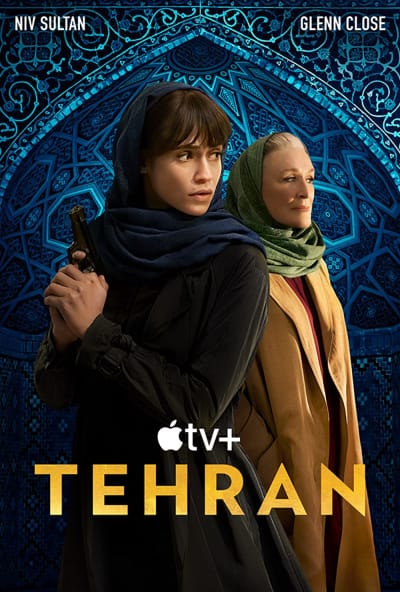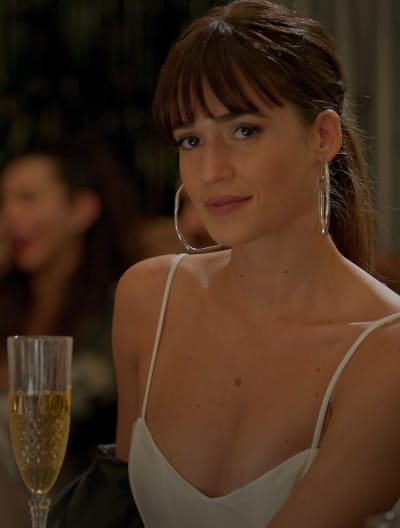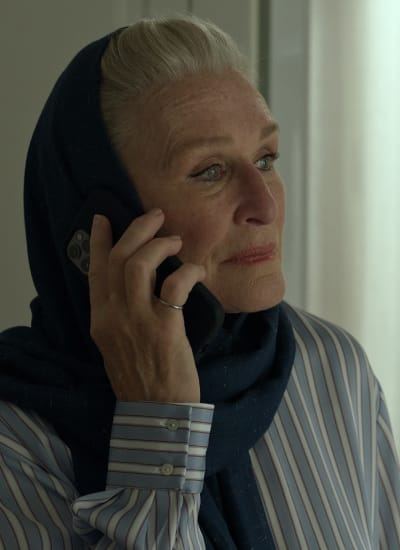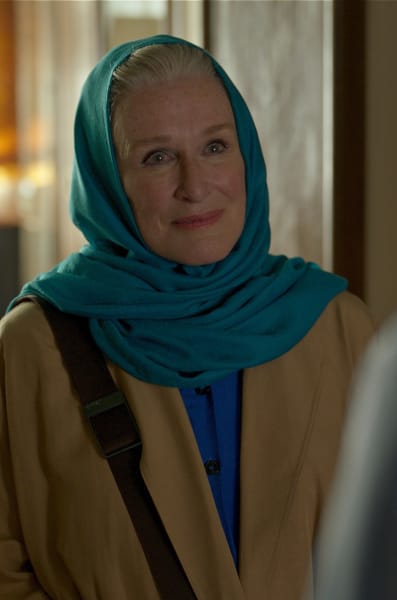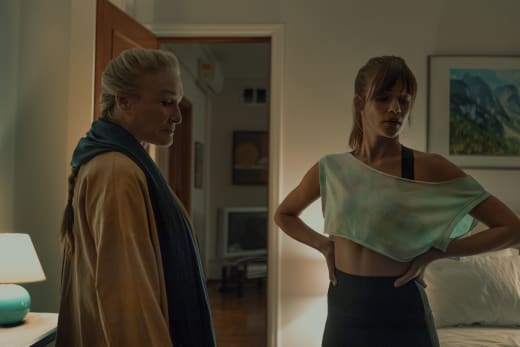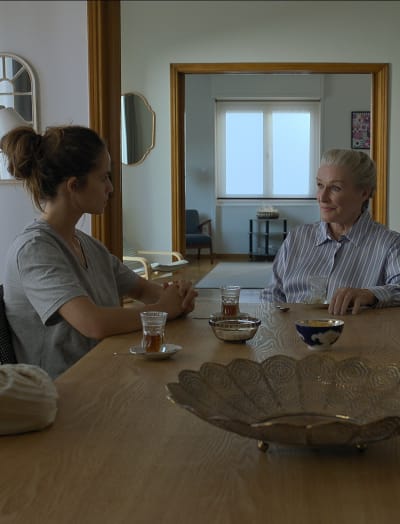Tehran Season 1 was an international hit for a reason.
Focusing on the Israel-Iran conflict through Mossad agents infiltrating Iran to stop their development of nuclear power, Tehran offers edge-of-your-seat conflict and compelling character studies. It’s not easy to point fingers and determine good and evil on Tehran, and it’s all the better for it.
Tehran Season 2 changes direction with a flashier, more youthful vibe, and with an expanded budget, this Apple TV+ thriller takes the action and suspense to another level. We had the chance to talk with Glenn Close, who joins the second season, as well as star Niv Sultan, co-creator Dana Eden, and director Daniel Syrkin.
We hope you enjoy the discussion and get your fix with the first three episodes of the second season on Apple TV+ today!
Thanks so much for taking the time today. Congratulations on your International Emmy.
Dana: Thank you.
Daniel: Thank you very much.
As an Israeli show, how did you go about presenting this character study that’s so nuanced between the Israelis and the Iranians?
Dana: It was very important for us to do and non-stereotypical show, you know, it’s a stereotype show, because we, during the research, found out things that we really didn’t know about the Iranian culture, about the Iranian people, about the Iranian regime, about to Iran, and we wanted to show that to everyone.
And I think that the conflict between Israel and Iran is a very big part of our lives. And we wanted to really understand its conflict and to make it layered and complex as it is. And I think that through Tamar’s character — who is an Iranian immigrant into Israel who has to go back to her hometown — we showed the conflict, and we show the nuances of being an Iranian.
And I hope that the audience has felt it and saw the complexity of the characters and the Iranian culture.
And season two takes things in an entirely different direction. How long had you been planning this? And how did you accomplish such a tonal shift for the second season?
Daniel: When we finished season one, we already had some ideas of where we wanted to take season two. And we realized that, of course, it has to be as gripping and more gripping in season two; you just have to be better than in season one. And we understood that we wanted to be more tense.
And with Apple’s help, we could give audiences a little bit more of the tension of the scenes that the audience expects in those kinds of series. The first season was made on a limited budget, so we had to go mainly into psychology and the thriller genre, whereas, in this season, we have a chance to tell a little bit larger story.
And we knew that there is this phenomenon in Iran, which is called the Rich Kids of Tehran, who are the sons and daughters of the privileged. Some of them study in US universities and then go back to Iran, to their mothers and fathers or to leading people in the regime. And they live a totally western life, which is totally forbidden in Iran.
They drink alcohol freely and post it on Instagram, while if you’re not in this elite sect, you will be arrested for it. And we decided that we wanted to deal with this phenomenon and show it to the world. It’s interesting.
And you know, the world is sort of divided all over. And we put Tamara there, and from this, you know, just the setting of it is more flashy, dangerous. But it’s a different setting. And I think I love this choice we made.
And also, you have Glenn Close, and from what I understand, when you were initially thinking about the character, you pictured her in the role, and you wondered if she would do it. So how did actually getting her help bring that story to life, and what was it like getting that casting coup?
Dana: Well, you know, when we understood that we could have Glenn Close, you know, for us, it was like science fiction. It was wow, to work with such a Hollywood icon. And you know, when we spoke to her the first time on Zoom, I really liked that she was challenged by the role, and she liked that the role was challenging.
She liked the fact that she had to study Farsi in order to do the role. She liked the fact that she was going to do an international production with Israelis, Iranians, and Greeks on the set. Also, she didn’t do this genre before.
So, all of these challenges pulled Glenn into doing this role, and we’re so thankful and honored that she’s with us. And, of course, her participation really made us push ourselves to excellence. And when you have Glenn Close, you have to be excellent. And I think she really elevated the show to the next level.
Glenn starting with you, with everything you’ve done, you’ve done nothing like Tehran. What was it like stepping into this role?
Glenn: Very challenging. Because I started by beginning to learn Farsi, which I worked on for over two months before I decamped to Athens. And I think that initially, it continued to be a real challenge and a real goal to make it believable that this character would be fluent in Farsi.
That was the beginning, but for everything else, I never played an agent, never was on a multilingual set, never filmed in Athens. There are so many firsts. For me, at this point in my career, I think, well, it’s a no-brainer. I’ve got to do it.
And why would you describe Marjan?
Glenn: Let’s see, Marjan has a very strong center. She is very motivated to do what she does. She is in love with Iran. It has become her adopted country. And she loves the culture. And she feels that the only thing to do is what she has decided to do.
And Niv, what is Tamar’s frame of mind as we launch into the second season?
Niv: After the first season finale, I think that Tamar thinks that she is older and doesn’t want to get orders from anyone. She wants to do her last mission and just run away to get out of Tehran. But things go wrong. And her motivations are changing.
What do you think is her take on Marjan?
Niv: Think that they have a very interesting relationship because not only is Marjan, in a way, superior to her, like, senior to her in the Mossad, but they also have, I would say, a mother-daughter dynamic. They both are strong, rebellious women with their own opinions.
It creates clashes between them but also allows them to appreciate and relate to one another. And I feel like, in front of Marjan, she can be weak, and fragile, and unsure. And this is something that maybe she needs, too, like she was missing in her.
And also, for you, Niv, Tamar has that lofty goal of killing the general. And she’s also falling in love. How do these two sides of her co-exist?
Niv: She’s emotionally involved in many aspects. She is attached to Milad, so she’s emotionally involved with Milad. And she’s emotionally involved in the mission because, right now, it’s not her interest is personal.
So, she’s totally in for the mission, and she needs to protect her loved ones. And she has much to lose. Her judgment is an objective this season. And it makes everything much more complicated, I believe.
And Glenn, what do you think is Marjan’s take on Tamar? Does she see in her someone that would kind of follow in her footsteps?
Glenn: I think early on, she thinks she’s very cheeky and lacks experience, but she is also very impressed with her strength with her ability to say ‘no, I don’t think that’s a good idea.’
But I think she’s kind of taken aback at first with that kind of self-esteem and sees someone to contend with. She’s not just somebody you can say ‘do this.’
Please check out Tehran on Apple TV+ today!
Carissa Pavlica is the managing editor and a staff writer and critic for TV Fanatic. She’s a member of the Critic’s Choice Association, enjoys mentoring writers, conversing with cats, and passionately discussing the nuances of television and film with anyone who will listen. Follow her on Twitter and email her here at TV Fanatic.

